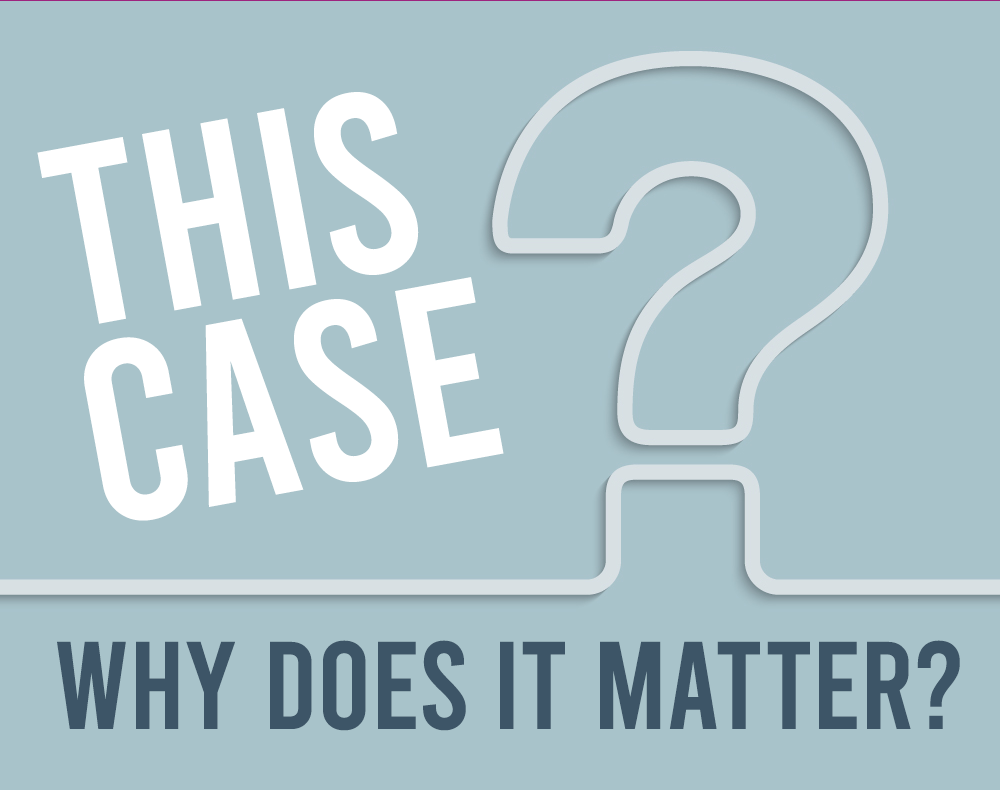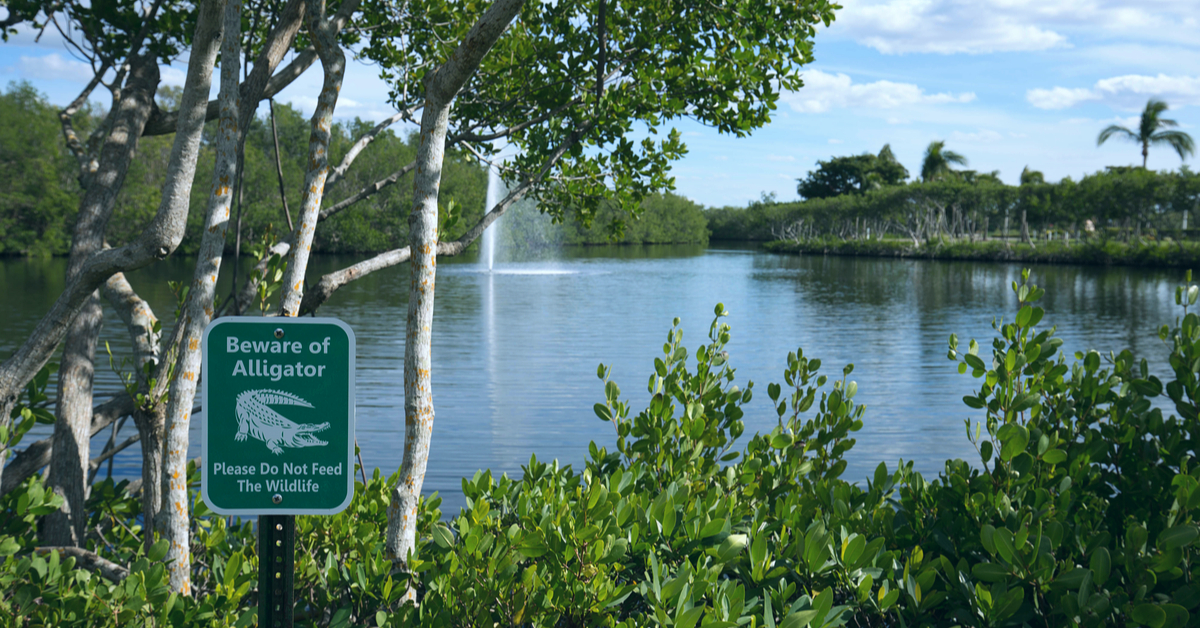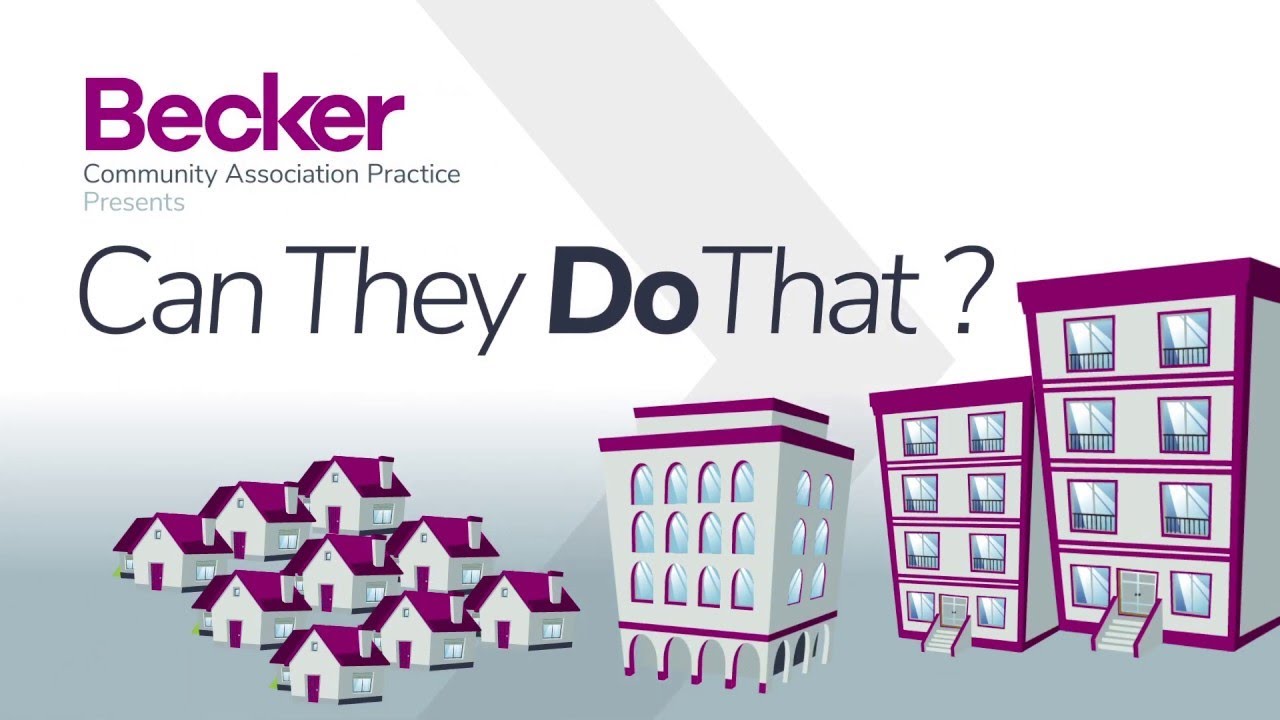Stay up to date with Becker’s dedicated resource page on COVID-19. All information is posted to educate and inform our clients but does not constitute specific legal advice for your community. Please consult your Becker attorney for questions specific to your own community. CLICK HERE
In this Issue
With 2020 finally in the rearview mirror, we dive into what’s ahead for community associations in the New Year. In addition to enjoying this month’s featured articles, we encourage you to take part in our COVID-19 vaccine survey. We want to hear your thoughts on whether or not your association is considering becoming a vaccine point of distribution (POD).
Associations are often at a loss with how to assist individuals who are unable to adequately care for themselves. Our featured article, “An Association’s Response to those Persons Who May Need Some Additional Care in Living,” provides helpful guidance.
This article is the first of a two-part series on the vital subject of amending community association governing documents. Part I, “Amending Governing Documents– WHY?,” focuses on the common reasons a community association should consider amending its governing documents.
The line between what an association’s board can legally do as a matter of law and what the board should do as a matter of good practice is often blurred. We discuss in, “The Membership Poll – The Pros, Cons and Confusion of Taking a Membership Survey When a Membership Vote is Not Required.”
Lastly, reasonable rules promoting the health and safety of members of a community association are at the heart of “THIS CASE: Hidden Harbour Estates, Inc. v. Norman.”
Mark D. Friedman, Esq. & Jay Roberts, Esq., Editors
-
 An Association’s Response to those Persons Who May Need Some Additional Care in Living
An Association’s Response to those Persons Who May Need Some Additional Care in LivingSome older individuals choose to live out their final years in their personal residences alone, rather than in nursing homes or assisted-living facilities. Additionally, there are times that other individuals may experience certain mental health issues that make them unable …
Continue Reading →
Amending Governing Documents
Part I – Why?
This article is Part I of a two-part series on the vital subject of amending community association governing documents. This article will focus on the common reasons why a community association should consider amending its governing documents. Part II will focus on how to amend governing documents. There are three common reasons why associations should consider amending their governing documents: (1) the language was drafted by the developer; (2) ambiguity; and (3) the current language is not consistent with current state or federal laws.
The Membership Poll – The Pros, Cons and Confusion of Taking a Membership Survey When a Membership Vote is Not Required.
By: Shayla Johnson Mount, Esq.
The line between what an association’s board can legally do as a matter of law and what the board should do as a matter of good practice is often blurred without any practical guidance available for well-intentioned directors who want to do the very best they can for their community based upon very often limited information available prior to taking a vote. As the duly elected “representative body” of the association, one of the most important functions of the board is its authority and ability to make timely decisions on various routine issues affecting the association without requiring the time and effort involved to obtain a full vote of the association’s membership.

Hidden Harbour Estates, Inc. v. Norman,
309 So.2d 180 (Fla. 4th DCA 1975)
Reasonable rules promoting the health and safety of members of a community association are at the heart of THIS CASE.
The Hidden Harbour Condominium’s bylaws provided that the condominium association had the power “to make and amend reasonable rules and regulations respecting the use of the condominium property.” A similar provision is included in its Declaration of Condominium.
The common elements included a club house which was used for social occasions. The board adopted a rule prohibiting the use of alcoholic beverages in the club house and adjacent areas. A condominium unit owner objected to this rule and sought injunctive relieve of the trial court to prohibit its enforcement. After a trial on the merits at which the Normans showed that there had been no untoward incidents occurring in the club house during social events when alcoholic beverages were consumed, the trial court granted a permanent injunction against enforcement of said rule.
The Association appealed this decision. The appellate court held that: “It appears to us that inherent in the condominium concept is the principle that to promote the health, happiness, and peace of mind of the majority of the unit owners since they are living in such close proximity and using facilities in common, each unit owner must give up a certain degree of freedom of choice which he might otherwise enjoy in separate, privately owned property. Condominium unit owners comprise a little democratic sub society of necessity more restrictive as it pertains to use of condominium property than may be existent outside the condominium organization. . . . “
The court found that such restrictions were valid and that there was nothing unusual about a group of people electing to prohibit the use of alcohol in a common owned area.
So why does THIS CASE matter? Associations must review their governing documents to ensure that they have proper rule making authority and whether only board approval is required to create a rule. The legal test for a valid rule is one of reasonableness. If the board has the power to adopt a rule, said rule does not conflict with some other right contained in a superior governing document, and the rule is reasonable, then the association can adopt it. If not, it cannot. It is not necessary that conduct be so offensive as to constitute a nuisance to justify regulation. It is always recommended when creating new rules that you consult with your community association attorney since the rules may not contravene the provisions found in the Declaration, Articles, and Bylaws, and may not violate state or federal laws, including but not limited to fair housing laws.
We Want to Hear From You! Take Part in Our COVID-19 Vaccine POD Survey
Community leaders and residents have been tested by an unprecedented pandemic that created upheaval and strain worldwide.
Some communities suffered multiple infections and deaths, others struggled to strike the right balance between COVID-19 safety protocols and personal freedoms but all recognized that this public health crisis presented a novel challenge for both veteran board members and newcomers alike. With COVID-19 vaccines becoming available, many communities are considering whether or not to register to become a point of distribution (POD).
Please take our 2-minute survey. For those communities who indicate a willingness to serve as a POD, and are a Becker client, your Becker attorney will assist your board in registering as a POD.
Please note that becoming a POD is subject to certain requirements and not every community will be eligible or able to meet the terms of the required agreements with vaccine providers.
Additionally, all respondents will receive a compilation of the survey results.
Question of the Month
Q: Are “beware of alligator” signs legally required in Florida?
Shareholder Joseph Adams provides the answer to this question and more.
Donna DiMaggio Berger Joins Castle Group in Season 2 Episode 7 of their COVID-19 Webinar Series
Becker Community Association Shareholder Donna DiMaggio Berger joins Castle Group’s Founder and CEO James Donnelly for a new episode that continues to explore the challenges associated with reopening communities as well as the rollout of the COVID-19 vaccine and what it means for communities.
Reflections On The Lasting Effects Of The COVID-19 Pandemic
FLCAJ Magazine
By: Lilliana M. Farinas-Sabogal, Esq.
No one has a crystal ball to look into the future, but some things are more likely than others. The many media references to the “2020 Bingo Card,” containing any number of unfathomable happenings, supports the idea that no one could possibly have predicted the kinds of questions lawyers are receiving from their community association clients today related to COVID-19.
Some communities have insisted on all online/remote meetings, others have required mask wearing throughout the common areas, and yet others have continued to want to limit guests or common area usage due to health and safety concerns. Some communities have had divided boards or divided memberships, in that one portion has desired strict protocols and limitations, while the other portion has wanted “back to normal” as soon as possible.
Lawyer Up
Common Ground Magazine
By: Donna DiMaggio Berger, Esq.
Some boards only engage legal counsel when a situation has become dire. Others are overly cautious and all the attorney at the drop of a hat, but unusually high legal bills often lead to membership scrutiny.
More often than not, however, boards don’t consult legal counsel enough. It’s a dangerous way to do business since every board action is viewed through a prism of reasonableness. Failing to obtain legal advice on subjects outside a board’s expertise might cast it as unreasonable in the eyes of a judge or mediator.
Before knowing when to call, every board should decide at its organizational meeting which members will be authorized to contact the attorney and other service providers to control costs, eliminate duplicate or conflicting requests, and set the right tone for operations.
In case you missed it! – Can They Do That?
Episode 01: Medical Marijuana Use in Your Community Association
Original Air Date: January 9, 2019
Medical marijuana is now legal in Florida. Does that make it legal to smoke in a condo? Community associations across the state are asking, “Can They Do That?”
Hosted by: Donna DiMaggio Berger
When it comes to association rules and bylaws, there seem to be more questions than answers. Becker’s video series, “Can They Do That?” tackles some of the unique problems that homeowners and renters face today. We answer questions, no matter how far-fetched they may seem. From service animals to nudists in your community, we get to the bottom of it and let you know – “Can They Do That?”
Don’t miss out on new episodes of “Can They Do That?”
Subscribe to Becker’s YouTube channel!
Statewide Suspension of Community Association Classes
Becker has been closely monitoring the latest coronavirus (COVID-19) developments. In the continued interest of the health and safety of our clients and colleagues, we have made a decision to continue the suspension of all Community Association classes until further notice.
As always, we will keep you informed of any changes and updates.
CALLING ALL BOARD MEMBERS AND COMMUNITY MANAGERS
As a service to the community and industry, we are pleased to offer some of our most popular classes online! While our in-person classes remain suspended until further notice due to COVID-19, we are thrilled to bring you the following classes to participate in from the comfort of your own home.
- HOA/Condo Board Member Certification
- Disaster Preparedness and Recovery
- Anatomy of a Water Leak
- Understanding Our Bylaws
- Is a “No Pet” Building a Thing of the Past?
- How to Properly Run an Election
- Budgeting & Reserves
- Covering Your Assets: How to Avoid Board Member Liability
- Collection and Foreclosure Strategies for Community Associations
- Dealing with Difficult People
- Construction Projects Gone Wild
- 2021 Legal Update
Developer-Friendly Politicians Once Again Try to Tinker with Consumer Protection Legislation
Chapter 558, Florida Statutes and Section 553.84, Florida Statutes are consumer-friendly statutes drafted and signed into law years ago to protect Florida homeowners, HOAs, and condominiums, provide for the resolution of construction defect claims, and promote the settlement of claims without resorting to litigation. Bills filed recently by Florida politicians would severely hamper the protections provided to consumers by these statutes.
Section 553.84 provides a cause of action for violations of the building code. The law allows a damaged homeowner, HOA, or condominium damaged by a building code violation to sue the developer or contractor who committed the violation. There are existing protections for the developer or contractor that obtained the proper permits and passed all city inspections so long as the developer/contractor did not know and should not have known that the code violations existed. It’s a piece of common-sense legislation that has long protected Florida homebuying consumers. Unfortunately, common sense goes out the door with the latest changes proposed by several Florida politicians.
UPCOMING AND RECENT WEBINARS
Castle Group’s COVID-19 Webinar Series: Season 2, Episode 7
Donna DiMaggio Berger participated in episode 7 of the second season of Castle Group’s COVID-19 webinar series. She was joined by Castle Group’s Founder and CEO James Donnelly as they continue exploring topics including the challenges associated with re-opening communities.
Understanding our “Bylaws” – A Primer on Association Governing Documents
Hosted by CAI-SE
Speaker: Howard Perl
February 2
1pm – 2pm












![look-[Converted]](https://www.floridacondohoalawblog.com/wp-content/uploads/2020/04/look-Converted.png)




